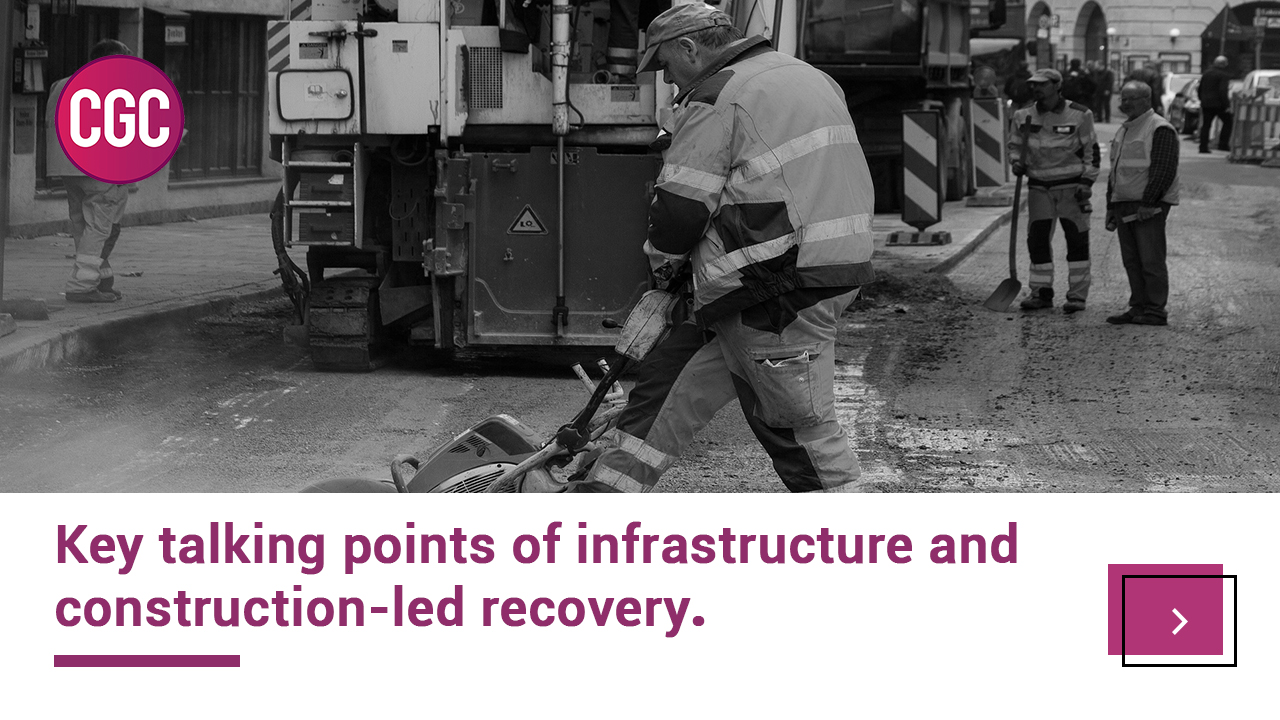We have good news - the infrastructure sector is bustling with opportunities for jobseekers - Infrastructure Australia highlighting 44 new proposals delivering $59 billion worth of projects this year.
Infrastructure Australia has released its 2021 Infrastructure Priority List containing a comprehensive investment roadmap to support Australia’s recovery from the COVID-19 pandemic. The new proposals for our cities, regions, and remote communities include significant national investments which are ‘shovel ready’.
This exciting project pipeline provides considerable job opportunities for jobseekers in the infrastructure market. And in a candidate-driven market, you now have far more power at the hiring negotiation table than ever before.
Here are our top tips to help you capitalise on this opportunity.

1. Create a detailed career plan
A career plan is a practical strategy that involves mapping out what you’d like to achieve and how you’re going to do it. It provides a better idea of your career path, but there are many other benefits too. Below are four steps to creating your own career plan:
- Set and prioritise your goals: Identify and prioritise your short and long term goals. If you don’t set goals, you can’t build a plan to achieve them - or know what success looks like once you get there. Goals can be anything from a promotion, salary increase, or the completion of a specific course.
- Find something you enjoy: To be fulfilled in your professional life, you need to find a career you enjoy. Ask yourself what your passion is, what you’d like to learn, and how you’d like to achieve this.
- Understand your strengths and weaknesses: Having an understanding of what your strengths and weaknesses are means you can identify what you need to improve on and understand your selling points to potential employers. Once you’ve identified a gap in your skillset, research any further training you might need to undertake to progress along your dream career path.
- Build up a support network: If you’re looking to change or enhance your career, spend some time networking to foster more professional relationships. This can be formal or informal mentoring, coaching, or other support.
For more information on how to build a career plan, check out our blog on the topic here.
2. Know what you’re looking for in an employer
There are many factors to consider when changing roles that often get overlooked. It’s important to not only look for a position that will be a good fit for you now - look for one that also has longer-term potential. Here are some things you should keep in mind when deciding between potential employers.
- Job security: While the term ‘job security’ sounds like a cliché, it's extremely important when looking for a new employer. During the interview stage, make sure you ask how long people have worked at the company, or research the company before you apply.
- Training and development: A good employer offers their employees opportunities to improve their skills. Training can be delivered through on-the-job learning, mentoring programs, in-house training, or through individual companies.
- Flexibility: Choose a company that understands the value of work/life balance and provides work flexibility. Although it may be difficult to offer infrastructure employees an option to work from home, you can still ask your potential employer if they offer a flexible schedule. This allows you to work hours that differ from the average company start and stop times, and can include alternate working weekends.
- Well-resourced: A successful business resources efficiently and effectively. When choosing an employer, ascertain whether or not projects are well resourced. This means you and your team members won’t be overly stretched - and will produce a positive impact on your overall well-being.
3. Remember honesty is still the best policy
As mentioned earlier, the infrastructure sector is currently a candidate driven market. This means you’ll most likely receive multiple job offers when you decide to go job hunting. Your current employer may also try to offer more to retain you as their employee.
However, it’s important to remain open and honest during the interview stage, particularly when it comes to how many job offers you have received and your skillset. This will allow your potential employer to identify where they fall short and give them an opportunity to offer you something that their competitors can't.
Recruitment trends in the infrastructure sector
There is a huge shortage of skilled professionals to deliver the major infrastructure project pipeline in progress. This has continued without significant issues despite the pandemic.
We have seen a significant demand for talent from major private and public water, road, and rail projects. With international borders still shut and with the expected delays in restarting international mobility effectively, the competition for talent will continue to be fierce. This is especially the case in NSW, with salaries increasing by over 15%.
With the industry on an upward trajectory, the talent pool will decline. Read CGC in Focus to find out what we predict for salary rises as talent pools shrink and work ramps up.
Conclusion
Thanks to significant government spending in the infrastructure sector, you don’t need to jump at the first offer that comes your way. You get to be choosier.
Utilising our key guidelines for what to look for in an employer will help you narrow your choices. And creating a detailed career plan will also assist you in making the right decision. But, above all, being honest is important!
About CGC Recruitment
CGC Recruitment is a specialist consultancy with offices in Sydney and Brisbane. We specialise in fulfilling roles in the construction, infrastructure, engineering, and architecture sectors at all levels. As a leading industry recruiter, we always have a long list of opportunities for ambitious and professional individuals.
You can search our latest vacancies here, or alternatively, upload your CV and we’ll contact you when we have a suitable vacancy available.












